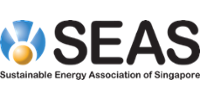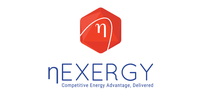Event Details
Administrative Details
Course is done at your own pace via SEA's e-learning platform, learners are guided through a series of lectures conducted by Mr Klas there will be a live Q&A session to cater to participants questions on the material on the 30th of November. Practical examples from participants experience in HVACR systems will be welcomed. Attendance for this is voluntary.
Time: 2pm - 6pm (GMT +08:00 Singapore)
Venue: Virtual Classroom : Lectures with Q&A session
Contact: +65 - 6338 8578
Email: training@seas.org.sg
SCEM PDU Points: 4
Course Summary
Performance analysing - based on Climacheck method, Training Level 1
Cooling and Heating systems consume 15-20% of the electricity produced globally. To maintain temperature is critical but maintaining temperatures alone are no longer sufficient. Knowing the performance of these systems is therefore critical in order to make them efficient. With increasing energy demand and focus on global warming, the built environment is facing increased scrutiny. In many countries, and more so in the tropics, HVACR equipment in buildings are a major source of energy consumption which typically have high maintenance costs associated with them. There is also an increased focus on Measuring and Verification (M&V), as well as early warning to achieve maximum reliability to reduce loss of perishable goods, production capacity and to avoid bad will with tenants and guests due to failing temperatures
Training starts with a review of the basic thermodynamics required to establish performance factors (a pretraining refresher will be distributed for participants that want to make sure they are up to speed with definitions and basics used for analysing). Then training moves into data collection, including what sensors are required and how they should be applied to minimize uncertainty of results. How to validate data inputs and results are covered.
An interactive quiz will follow each module to reinforce learnings for each topic. Pre course material will be provided and copies of material over the e-learning course will also be sent to the participants after the training.
MasterClass Course Goals:
- To give participants a method to compare operation of a system with design, maintenance instructions and good practice.
- To make participants aware of the possibility to reduce failure rates, maintenance cost, energy consumption and refrigerant leaks by introducing state of the art M&V methods.
Module 1:
Training Workshop Introduction
Introduction to the topic of ACMV optimisation and predictive maintenance. Lead trainer, Klas Berglof, present a global outlook on business as usual and importance of innovation in this sector.
Module 2:
Basic Thermodynamics
Basic thermodynamic terms and concepts in relation to vapour-compression cycles are explained in this module. The pressure enthalpy chart is used to demonstrate the different refrigerant states.
Module 3:
System Efficiency Index
A detailed understanding of the components responsible for compression, condensation, expansion, evaportaion and refrigerant charge and how it can be measured with the Internal Method.
Module 4:
Main HVACR Components
The SEI as an key performance indicator (KPI) for HVACR systems is explained and compared against the conventional COP.
Module 5:
Energy Signatures & Reporting
Performance of HVACRS systems are studied to develop energy statistics to better understand the system behaviour in different operating conditions.
Module 6:
KPIs for Refrigeration and Heat Pump Plants
How to evaluate the various types of HVACR equipment and assigning important KPIs to do this.
Module 7:
Practical Introduction
This and the following modules will focus on how data is obtained and how it is used to optimise systems
Module 8:
Hardware - Sensor Application
The application of relevant hardware is important to obtain good quality data. This module discusses the methodology and appropriate instruments to do this.
Module 9:
Performance Analysing Software
The importace of analytics software, when it can be used and how it can generate insights.
Module 10:
Implementing Analysis And Scoping
How IoT platforms can be used for performance monitoring and predictive maintenance. System scoping is also covered to understand the process of identification of components relevant to performance analytics
Module 11:
Interpretation Of Basic Measurements
Key parameters and conditions of various systems are discussed. This modules explains how various visualizations in analytics software aid in making deductions and monitoring future operations.
Module 12:
Optimization
A summation of the the course leading to the process of optimisation and specific considerations to make this possible.
Course Outcome
- Identify what data points that is required to analyze basic HVACR equipment.
- Apply sensors on correct position and with correct application to get good quality data.
- Use data collection units to collect pressures, temperatures and electrical measurements.
- Adjust/configure ranges for basic sensors used.
- Validate data inputs
- Select and make basic adaptation of appropriate analyzing "template" to correspond to measured system
- Validate results such as versus design and/or good practice.
- Understand and be able to compare performance indicators such as COP, System Efficiency Index, compressor/evaporators/condensers efficiency.
- Understand interaction of different adjustment parameters in an HVACR system
- Awareness of the importance of commissioning of controls for each installation
*E-certificates will be issued upon successful completion of this workshop


